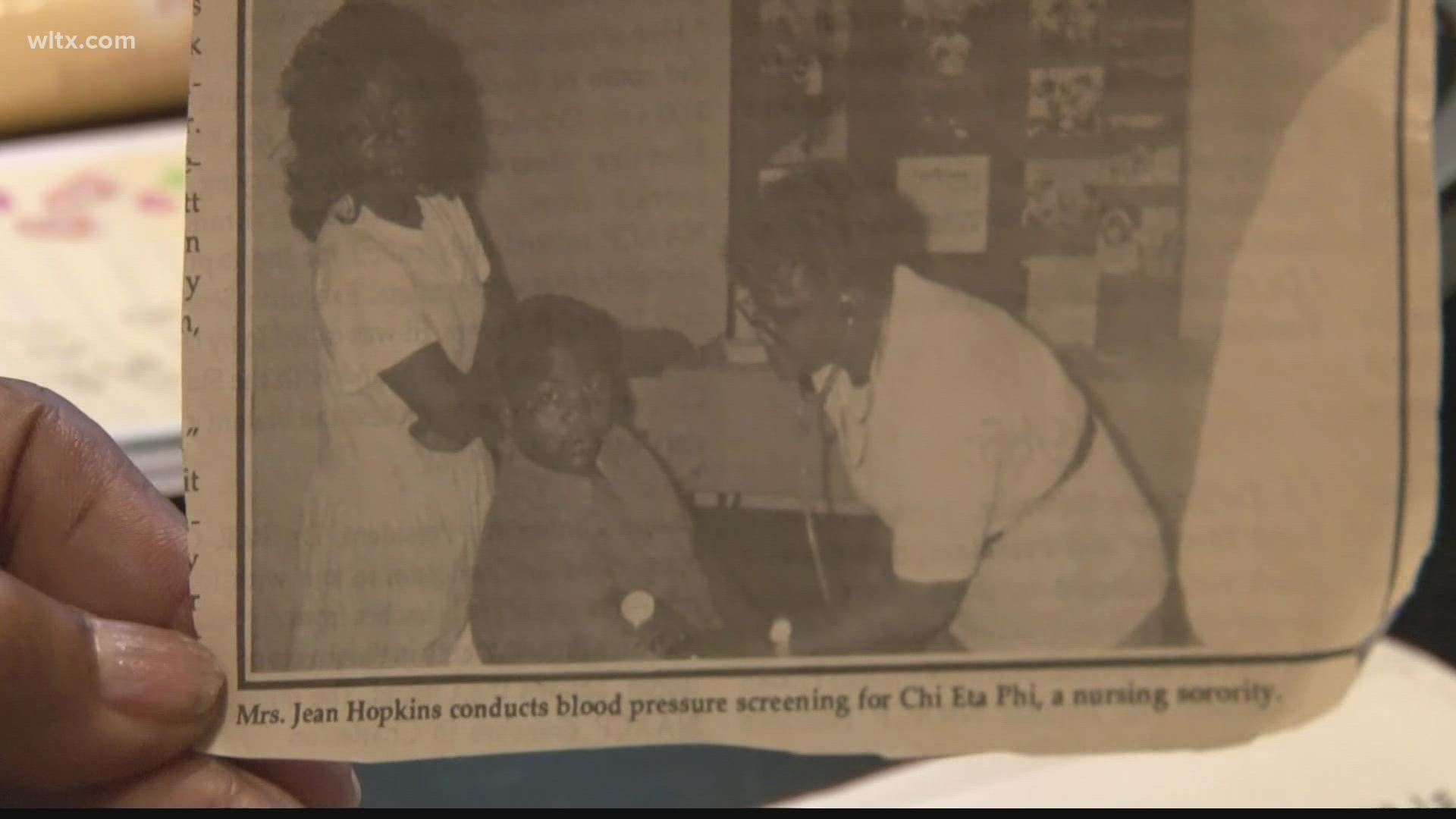COLUMBIA, S.C. — The walls of Jean Hopkins's house are covered in newspaper clippings, special awards, and recognitions from her time as an advocate and a nurse. She is a Columbia native, Booker T Washington Graduate, and a licensed nurse from the 1950 class at Columbia Hospital's school of nursing. After graduating, she began work at Good Samaritan-Waverly Hospital. She remembers growing up in the segregated South.
"You couldn't use certain facilities, lunch rooms, rest rooms - you couldn't use them - it had 'colored only'," Hopkins said. "That used to confuse and that used to frustrate me."
Brian Fors is a curator at MUSC. He said the history of many Black hospitals and medical professionals has been something that is quiet different from white institutions.
"You can read what leaders are thinking 50 years ago about healthcare but you can't do that with the Black hospitals because they're not saved anywhere," Fors said.
Presently, he and his team are working to find and preserve those pieces of South Carolina's medical history.
"We're looking for the operational records of hospitals, and clinics and private practices," Fors said. "So this would be official correspondence coming out...it could be business ledgers that keep track of expenses...and research and general information on health in the community."
Catherine Fleming Bruce is a political activist. She is also working to preserve Columbia's Black medical history. She adds that there has been a history of health disparities with the black community and proper documentation can help correct that.
"Looking back at our past medical history, is important so that people understand the roots of segregation, the roots of the disparity, the fact that African-American people weren't just victims. we were solution makers, we were problems solvers," Bruce said.
Fors said that in order to fight current and future health disparities having access to these records is crucial. If you come across some of the old records, he wants people to email him at Fors@musc.edu.
"There was a whole system of care that's going on by black professionals that, as you pointed out, we don't know much about," he said. "So we need to discuss that history to give a proper perspective...in order to address inequities of the past...and we can't do that without the historical documentation."

